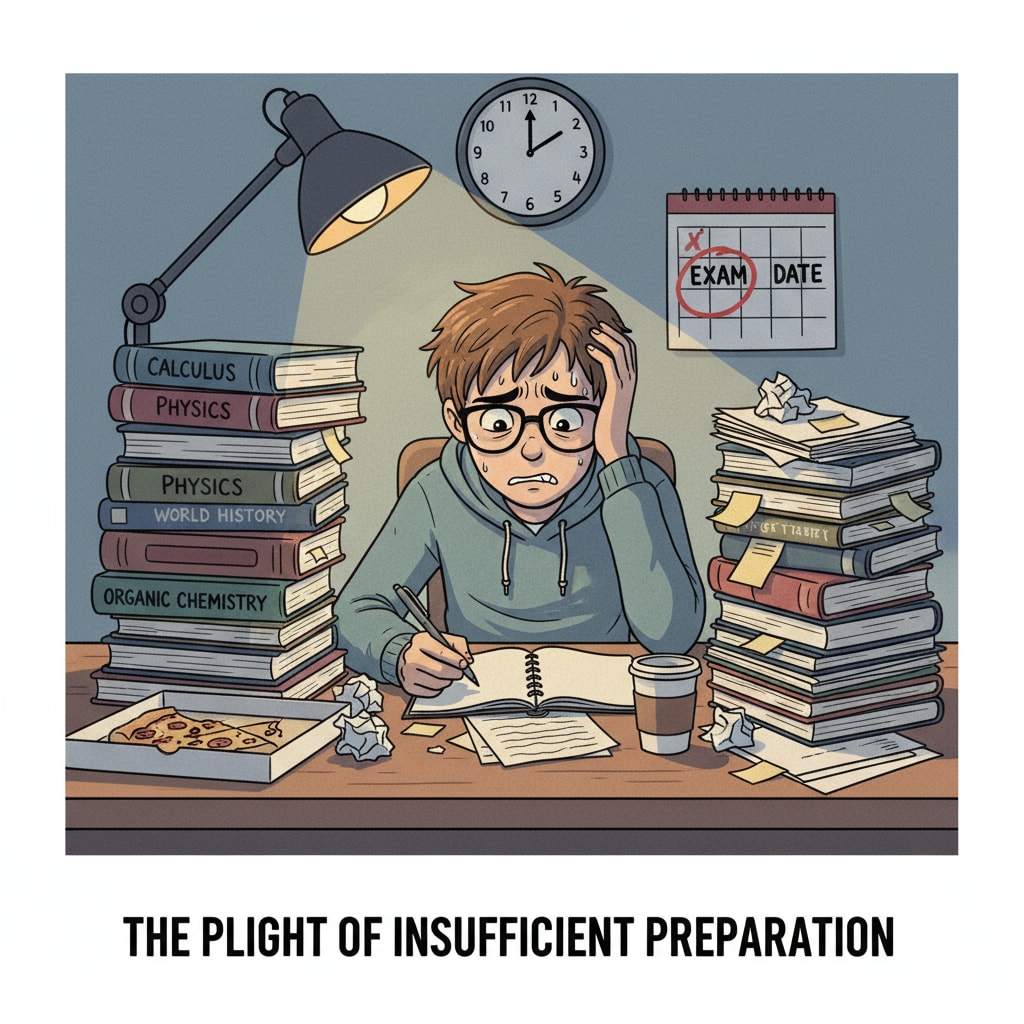Exam failure, inadequate preparation, and test preparation methods are crucial topics for K12 students. Many students experience the disappointment of failing an exam, often due to insufficient preparation. In this article, we will explore how to turn this situation around and develop effective strategies for success.

The Root Causes of Exam Failure
One of the main reasons for exam failure is inadequate preparation. This can stem from poor time management, lack of a proper study plan, or simply not understanding the material. For example, some students may procrastinate and leave their studying until the last minute. As a result, they don’t have enough time to cover all the necessary topics. According to Education.com, understanding your learning style can significantly improve your study efficiency.

Time Management for Effective Preparation
Time management is a key factor in successful test preparation. Creating a schedule and sticking to it can help you allocate sufficient time for each subject. Break your study sessions into smaller, manageable chunks. For instance, instead of studying for hours on end, study for 30 minutes to an hour and then take a short break. This way, you can maintain your focus and retain information better. Britannica also emphasizes the importance of time management in effective learning.
Another aspect of time management is setting priorities. Determine which subjects or topics are more important and allocate more time to them. This doesn’t mean neglecting other areas, but rather focusing on the areas that will have the greatest impact on your exam performance.
Optimizing Learning Strategies
In addition to time management, optimizing your learning strategies is essential. Different students have different learning styles, so it’s important to find what works best for you. Some students learn better by reading, while others prefer visual aids or hands-on activities. Experiment with different methods to see which ones help you understand and remember the material more effectively.
Making use of available resources is also crucial. Textbooks, online courses, and study groups can all be valuable assets. For example, joining a study group can provide you with different perspectives on the material and help you fill in any knowledge gaps.
Psychological Adjustment
Preparing for exams is not just about studying hard; it’s also about maintaining a positive mental attitude. Test anxiety can be a major obstacle for many students. To overcome it, practice relaxation techniques such as deep breathing or meditation. Also, set realistic goals for yourself. Don’t put too much pressure on yourself to achieve a perfect score. Instead, focus on making progress and improving your performance.
Believing in yourself is another important aspect of psychological adjustment. Remind yourself of your strengths and past achievements. This can boost your confidence and motivation during the exam preparation process.
In conclusion, exam failure due to inadequate preparation is a common issue among K12 students, but it doesn’t have to be a permanent situation. By implementing effective time management, optimizing learning strategies, and making psychological adjustments, students can transform their approach to exams and achieve success. Remember, every failure is an opportunity to learn and grow. With the right strategies and mindset, you can turn your academic performance around. Readability guidance: Each section has clear points presented in short paragraphs. Transition words like ‘for example’ and ‘also’ are used to connect ideas. The focus is on providing practical advice for K12 students to improve their exam preparation.


